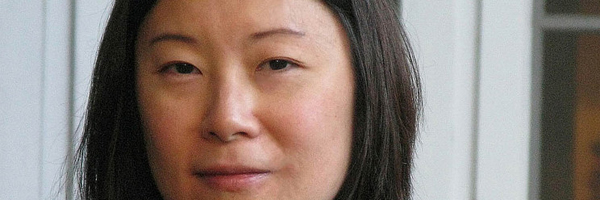Along with the plethora of interviews and reviews that we’ll be posting on the site in February, as per our tradition here on the site, part of our Sundance post-script is to identify the break-out talent and collectively rank them. First out of the gates, we look at the new voices: scribes, first-time feature filmmakers and short film helmers. Along with myself (Eric Lavallee), I’ve asked Nicholas Bell, Dylan Dempsey and Matt Delman to outline which creative folks left a definite mark but before we break out a top ten (scroll below) we’d like to acknowledge the likes of: Mariama Diallo (short Hair Wolf), Christina Choe (NANCY), Bryce Kass (screenwriter on Lizzie), Sev Ohanian (co-writer on Search), Angelica Nwandu (co-writer on Night Comes On) Rodrigo Barriuso and Sebastián Barriuso (Un Traductor) and Jordan Firstman (short Men Don’t Whisper).
#10. Bo Burnham

Word on the street is that legendary producer Scott Rudin saw Burnham’s ‘Make Happy’ Netflix comedy special, called him up, and asked him if he wanted to make a movie. In addition to his standup, Burnham has starred in a short-lived yet beloved MTV series, (Zach Stone is Gonna Be Famous), written a profound book of absurdist poetry (Egghead), and provided us with 8 months of hilariously inventive Vines (R.I.P.). Burnham had previously landed a script on the Blacklist entitled Gay Kid and Fat Chick that never got made. It likely would have been a starring vehicle for him, but with his new film he’s decided to stay behind the camera. Eighth Grade chronicles the last week of middle school for a shy 8th-grader named Kayla (Elsie Fisher) with painful accuracy. Stylistically speaking, the movie has flair. A pulsating electronic soundtrack heightens moments of full-blown adolescence, sometimes in slow-motion. Burnham’s musical background no doubt influenced some of his choices here, and likely informed his timing and pacing of scenes. He’s molded a multi-faceted movie for cinephiles, younger generations, and even moms and dads. If the performances Burnham coaxed out of Josh Hamilton and Fisher during their father-daughter culminating scene don’t make you tear up, then you are probably not human. (MD)
***
#9. Boots Riley

Rapper and Oakland native Boots Riley (of The Coup and Street Sweeper Social Club) brings his radical stylings to his subversive directorial debut, Sorry to Bother You. With Orwellian finesse, Riley presents a sort-of parallel universe Oakland to examine racial stereotypes in this troubling tale of a black telemarketer who finds extreme success by using his white voice to assimilate into the upper echelons of capitalism’s fancies only to find by selling out he becomes part of the problem. A first rate cast, including a variety of familiar talents such as Lakeith Stanfield, Tessa Thompson, and Omari Hardwicke, Riley skewers the pretensions of artistic integrity and the troubling roots of systemic racism which continually inhibit the progression of equality. Fantastic and over-the-top, Riley concocts a surreal allegory as a sign of our time. (NB)
***
#8. Sandi Tan

A film concept that technically took shape a couple of years back, but has been a two decade nightmarish odyssey and obsession for the principle person involved, Shirkers works as a kaleidoscope of a docu that could be described as an investigative travelogue, an inventive play on memory via celluloid, a postcard to Singaporean cinema of a what if? significance. Winner of the Directing Award: World Cinema Documentary, Sandi Tan‘s innovative first-person expose is brash, deceptively introspect with a proper funnybone, and there is a ghost like pattern that carries an Uncle Boonmee Who Can Recall His Past Lives experience. (EL)
***
#7. Jeremiah Zagar
Documentary and short filmmaker Jeremiah Zagar adapts Justin Torres’ novel for his narrative directorial debut, the co-winner of the NEXT Innovator Award We the Animals, a tempestuous coming-of-age drama about three young brothers growing up in the midst of their parents’ dysfunction. Told through the eyes of the youngest brother, who is just beginning to experience the rumblings of homosexual desires, which are clearly at odds with the traditional heteronormative parameters of his home life, Zagar crafts a stellar mix of innocence and yearning aided by fantastical escapes into impassioned animation. Raul Castillo (of Andrew Haigh’s “Looking”) and Sheila Vand (of Ana Lily Amirpour’s A Girl Walks Home Alone at Night) assist a trio of child performers making exceptional debuts as the three brothers (Isaiah Kristian, Evan Rosado and Josiah Gabriel). Early comparisons to Barry Jenkins’ Moonlight are merely superficial (and speaks to the extreme lack of material featuring any kind of queer characters who are also POC) as Zagar concocts something poignant, daring, and compelling enough on its own merits. (NB)
***
#6. Aneesh Chaganty

Chaganty quit his job directing commercials for Google to make his absorbing first-feature Search, which took home three awards at Sundance ‘18. Search follows a desperate father’s hunt for his missing daughter—set entirely on computer screens. The film is a technical tour-de- force. In order to get a high- res image, Chaganty’s team painstakingly animated the onscreen-onscreen action almost entirely from scratch. Hard-drive crashes were constant; the team wound up relying on an ancient iMac that mysteriously rendered their intricate project without fail. Even more impressive is how Chaganty managed to ground high-concept voyeurism in a story we care about. For 101 intense minutes, he uses tech to immerse us in his character’s lives: a father’s fumbled social media log-ins; texts messages nearly-sent; facebook ‘friends’ who aren’t really friends; folders of neglected videos and photos; a fight captured on YouTube, peppered with mean-spirited comments. His debut is both compelling and cautionary—a warning that our tech dependence disconnects more than it connects. It’s also a film full of promise: this wildly inventive young director will surely surprise us in years to come.
***
#5. Elizabeth Chomko

On paper, a drama about Alzheimer’s and adult family dynamics could be dismissed as Hallmark-like or second-hand Baumbach, but Elizabeth Chomko takes the mixed blessings of personal experience to craft a palpable journey that does a lot more than shine the light on the early affects of the disease. With What They Had, the actress turned filmmaker has her veteran cast hit all the right marks (just capturing Hilary Swank in insular jog mode is observationally sharp) stitching together a tale of shared history, shared responsibility and shared experience. With a tone that is deceptively perceptive and tender, what will be most surprising, is how Chomko tonally infuses a film that is generous in conflict, sorrow and guilt and imperfect characters with a keen sense of awareness and sincere comedic reprieve in life’s micro moments. (EL)
***
#4. Bing Liu

Bing Liu’s first feature Minding The Gap is one of Sundance 18’s best films, and winner of a Special Jury Award for Breakthrough Filmmaking. His film is a doc, and a breakthrough, indeed. As director, DP, co-star and co-editor, Liu explores the down-and- out world he shares with his two best friends: all three have tumultuous family lives; all three cope by skateboarding. The film is an intuitive mix of motion and emotion. Liu’s elegant, gliding camerawork is worthy of Thrasher Magazine; his thoughtful use of montage (with co-editor Joshua Altman) manipulates subtext and tone. He makes funny moments disturbing, he fills darkness with light—and while he shifts seamlessly between life in the streets and family drama, we’re glued to our seats. It also helps that Liu knows his characters better than most fiction screenwriters: he coaxes, he captures—and even shares his own vulnerability by filming himself while he interviews his mom. She reveals details about his traumatic childhood; it’s more of a gut-punch than if he told us himself. The result? Characters whom you care about more than any fictional trio. By the end of the film, you’re so attached that you want a sequel. (DD)
***
#3. Isabella Eklöf

Haneke continues to grandfather all breeds of enfant terrible filmmaking disciples, and from the power of the long take to the subversive, playful reassignment of the X and Y stereotypes (here femininity asserts itself and possibly “outmuscles” masculinity) Holiday is a Scandi treat that feels like an outdoor chamber-piece from a veteran filmmaker. Set in a toxic mafia world bubble gum turquoise filthy rich setting, first-timer Swedish-born Isabella Eklöf‘s World Dramatic comp title is loaded in subtext and expert level craftsmanship. Comparably more complex than speedo wearing Jonathan Glazer’s Sexy Beast, each calibrated sequence takes on shifting power dynamics, subtly increases the ante or malaise, or adds descriptive layers to what viewers might initially think is an empty vessel of a protagonist. The marketing materials alone makes this a must see, but what we find in this package is an assured hand and alluring portrait. (EL)
***
#2. Ari Aster

After studying at AFI and creating a twisted and controversial thesis short entitled The Strange Thing about the Johnson’s that went viral, director Ari Aster made himself known as a purveyor of insanity. His new film and first feature, Hereditary, is a wicked vision from a true auteur. Aster is completely in control of the image and sound and how they work together. The meticulousness of his compositions parallel the finely detailed dollhouses that our troubled protagonist creates in her workshop. He maintains suspense throughout the daytime scenes and slowly ratchets up his fever dream one tense moment at a time. Toni Colette and Alex Wolff are explosive as mother and son at odds. Aster mixes the supernatural with the psychology of a family in disarray to alarming effect. Though not entirely autobiographical, Aster has made clear that his work is partially influenced by his ‘own f*cked up family’ (as he put it at the Sundance Q&A). The plot is too deliciously evil to spoil, but suffice to say you won’t look at woodpeckers the same ever again. (MD)
***
#1. Jordana Spiro

Topping our list, and pretty much confirming what we had previously witnessed first-hand with her 2013 award-winning short Skin, for her lyricism, aestheticism, ability to elicit some gut wrenching performances from her lead actress and diminutive supporting player, long time actress and now writer-director Jordana Spiro serves up the complexities of the human condition with Russian roulette gusto, moving from tender, softhearted and hopeful, to some downright dark matter, a mean streak inside a bruised ensemble. Winner of NEXT Innovator Prize, Night Comes On is micro indie cinema working with macro ambitions and ideas. (EL).



